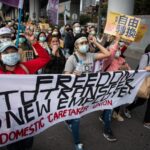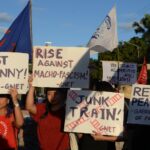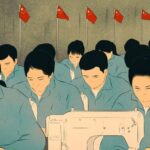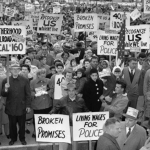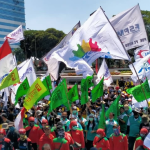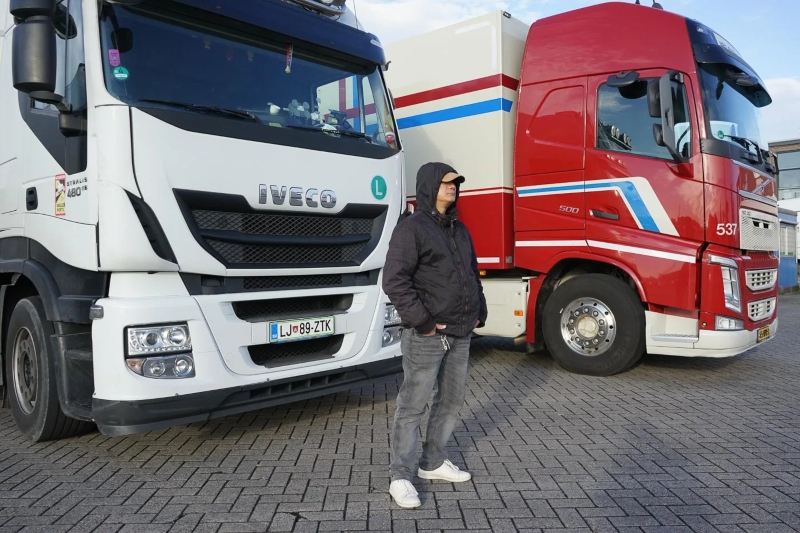
filipino truck drivers exploited in europe
 Philippines – Randy recalls being paralyzed by terror. “That could have been me,” he couldn’t get out of his head. One of his co-workers was involved in a car accident while travelling through Belgium’s snowy streets. Their boss forced his colleague to drive again the next day after he was released from the hospital.
Philippines – Randy recalls being paralyzed by terror. “That could have been me,” he couldn’t get out of his head. One of his co-workers was involved in a car accident while travelling through Belgium’s snowy streets. Their boss forced his colleague to drive again the next day after he was released from the hospital.
“Alam kong sobrang stressed’ yung kasamahan ko: kulang sa tulog, madaming utos na i-deliver,” says the narrator. [Ang amo namin] Palagi pang galet. Unloading kailangan mag in Switzerland, France, and Germany. Hataw, hataw, hataw, hataw, hat Randy, who requested that just his first name be used, said, “Wala kang magagawa.”
(I could tell my colleague was under a lot of pressure. Because there were so many deliveries, he didn’t get much sleep. Our boss was constantly enraged. In Switzerland, France, and Germany, we would unload [our cargo]. Everything was done in a hurry. We were powerless to stop it.)
Randy, 51, had been driving under similar circumstances.
He and other migrant truck drivers are trapped in Europe’s transportation business. Unscrupulous employers profit from an industry suffering from a shortage of truck drivers and beset by unequal regulatory implementation across European Union borders.
By undercutting pay and subjecting drivers to oppressive working conditions, these companies maximise profits. Human trafficking laws that do not recognise other forms of labour exploitation, such as the exploitation of migrant truck drivers, leave them defenceless and unprotected.
Mustapha To’ma, Randy’s boss, modified his tachograph tracking device so he could avoid obligatory rest periods and keep driving. Randy crossed the border to make yet another delivery, and the countryside faded into one other. He battled exhaustion and the loneliness of being alone in his truck. Randy’s life was changed forever by his colleague’s car accident. It was clear that something had to be done.
Randy and eight other Filipino truck drivers decided to sue their employer, Mustapha To’ma, owner of King’s Transport, for human trafficking. They said they were paid unfairly, had long driving hours, poor working conditions, and were verbally abused. The Netherlands’ public prosecutor’s office concluded a nearly three-year examination into their case in September 2021, dismissing their complaint.
Unfortunate and undesirable, but not slavery
Randy and eight other Filipino drivers revealed the conditions under which they were forced to labour from 2017 to 2018 in individual case records reviewed by Rappler.
While the circumstances varied, the guys all complained about being forced to utilise malfunctioning or disabled trackers to avoid mandatory rest periods and drive for long periods of time. They were not provided any living quarters and were forced to live in their trucks.
They were not paid as much as they had been promised. One person said that he had been verbally abused. Another said that he was threatened with not being allowed to return to work after being involved in a car accident.
Rappler also looked into the Dutch public prosecutor’s judgement. The drivers’ working conditions were described as “unfortunate and unpleasant” in the verdict, but there was insufficient evidence to substantiate human trafficking for labour exploitation.
There were no repercussions or sanctions for King’s Transport or its owner, Mustapha. A firm based in Poland does not fall under the jurisdiction or authority of the Dutch government. This seemingly insignificant element permits hauling companies all around the European Union to profit on the vulnerability of migrant truck drivers.
In Poland, King’s Transport was founded as a “mail box” enterprise. The “letter box” business technique allows transportation businesses to save money and avoid labour rules by establishing operations in a European Union member state with low salaries while solely operating in countries with higher pay.
King’s Transport began as a “mail box” company in Poland, but it only operated in the Netherlands, Germany, and France — three of Europe’s wealthiest countries.
Rappler reported in 2020 on a case of alleged human trafficking involving Filipino and Sri Lankan truck workers hired by Kurt Beier, a Danish transport firm. Kurt Beier, like King’s Transport, employed a variety of methods to get around a basic rule of employment: a person must be paid a salary that corresponds to the wage rules of the country in which they operate.
Related Posts
The supply chain’s backbone
Truck drivers, estimated at 3 million, are the backbone of Europe’s economy, hauling goods from ports and delivering them across borders. Truck drivers transport nearly 75% of inland freight through the European Union’s 27 member countries.
They share the same interminable roads, but their paychecks are vastly different. A driver hired from a low-wage country in Eastern Europe or the Philippines can earn as little as €500 ($560) for a work that would cost a Western European driver around €3,000 ($3,380).
“Bad employers profit from exploiting truckers,” according to Edwin Atema of the Federation of Dutch Trade Unions (FNV), which represents truck drivers in the Netherlands.
Atema drove Rappler to one of the several parking spaces that flank the highways leading from Rotterdam’s harbour, Europe’s largest seaport. Around 40 to 50 trucks were halted as drivers took a break from transporting anything from veggies and Dutch tulips to aircraft parts.
These parking lots transform into camping grounds on weekends, when drivers are required by law to take rest days. Truck drivers use the restrooms or portalets at gas stations to clean up. They cook inside their trucks during the harsh European winters. To sleep at night, they snuggle up in the cabins of their vehicles. They pick up and deliver a new load after the weekend is finished.
Hopes dashed, dreams broken
Randy’s ticket to making a living knew how to operate a steering wheel and navigate his way through Manila’s congested streets. He had dreamed of driving big trucks since he was a 10-year-old youngster growing up in Leyte, central Philippines, and taught himself to drive his father’s jeepney. Randy left Leyte in search of better-paying trucking work in Saudi Arabia and Qatar.
Randy spotted a Facebook ad in 2015 after five months in Qatar about an urgent need for drivers in Europe, offering €1,200 ($1,350) per month – three times what he was making.
Randy’s home had been destroyed by a tremendous typhoon little over a year before, leaving him with “no work, no house, no life.” He considered what a raise in wages would mean for him and his family. He sent a message with low expectations but high hopes for better working conditions and pay in Europe.
He said, “Hindi ko akalain magkakaganito.” (I had no idea how things would pan out.) He now faces returning to the Philippines and the economic difficulties he had hoped to avoid when their human trafficking case was dropped.
Their situation spurred Dutch lawmakers to launch a petition to widen the definition of labour exploitation and make it simpler to prosecute worker maltreatment in the Netherlands.
These legal changes are necessary for the transportation industry to reform, but they may be too late for Randy.
Their case is still on appeal, but Jeroen Maas, the drivers’ lawyer, is concerned. “Despite the fact that the issue has grabbed the attention of Dutch Members of Parliament, the chances of a successful outcome are very limited,” Maas stated.
“The government does not appear to be attentive to their position,” he noted, “simply because they do not qualify as ‘trafficking victims’ under the Dutch Criminal Code’s description of the specific crime.”







